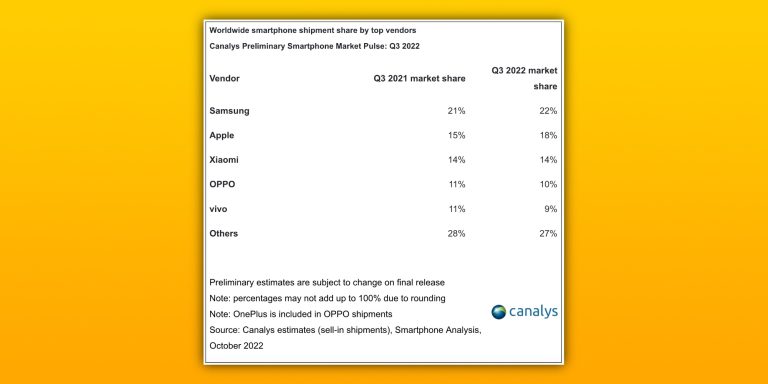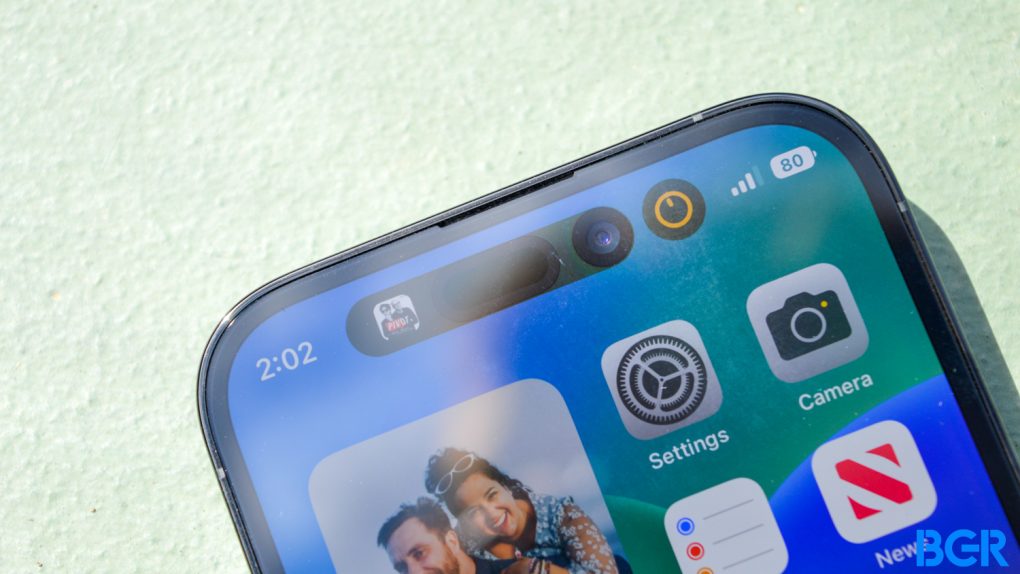While the global smartphone market recorded its third consecutive decline this year, Apple remains the only company to register positive growth. This time, the new iPhone 14 lineup, in addition to the previous models, helped Apple to be the only vendor in the top five to record this positive growth.
According to Canalys, Q3 2022 registered a drop of 9% in a year-on-year comparison, marking the worst Q3 since 2014.
The gloomy economic outlook has led consumers to delay purchasing electronic hardware and prioritize other essential spending. This will likely continue to dampen the smartphone market for the next six to nine months.
Samsung still maintains the leading position with a 22% market share. Apple, as pointed out by the analysis, “was the only vendor in the top five to record positive growth, improving its market position further with an 18% share during the market downturn thanks to relatively resilient demand for iPhones.”

“The smartphone market is highly reactive to consumer demand and vendors are adjusting quickly to the harsh business conditions,” said Canalys Analyst Amber Liu. “For most vendors, the priority is to reduce the risk of inventory building up given deteriorating demand. Vendors had significant stockpiles going into July, but sell-through gradually improved from September owing to aggressive discounting and promotions. The pricing strategy of new products is cautiously crafted, even for Apple, to avoid significant pushback from consumers who now tend to be very sensitive to any price hike,” added Liu.
While iPhone 14 Pro models are surely helping Apple to maintain its position, several reports show the company is struggling with the base models iPhone 14 and iPhone 14 Plus. A new DigiTimes story (via MacRumors) shows that “several supply chain makers” received a notification from Apple to cut iPhone 14 Plus production by around 40%.
Not only that, but DigiTimes’ sources show that Apple will revise downward the total shipments of iPhone 14 Plus to around 10 million units for 2022. At least, it seems the company is moving its production efforts to the iPhone 14 Pro models.
Recently, analyst Ming-Chi Kuo said Apple failed with its product segmentation for the base model iPhones as the iPhone 14, the iPhone SE 3, and even the iPhone 13 mini sold poorly.








